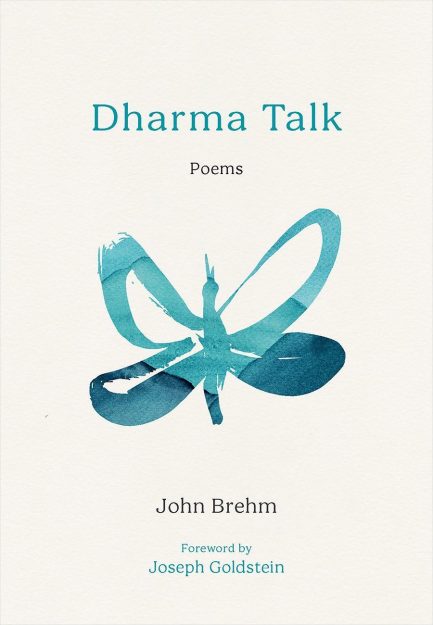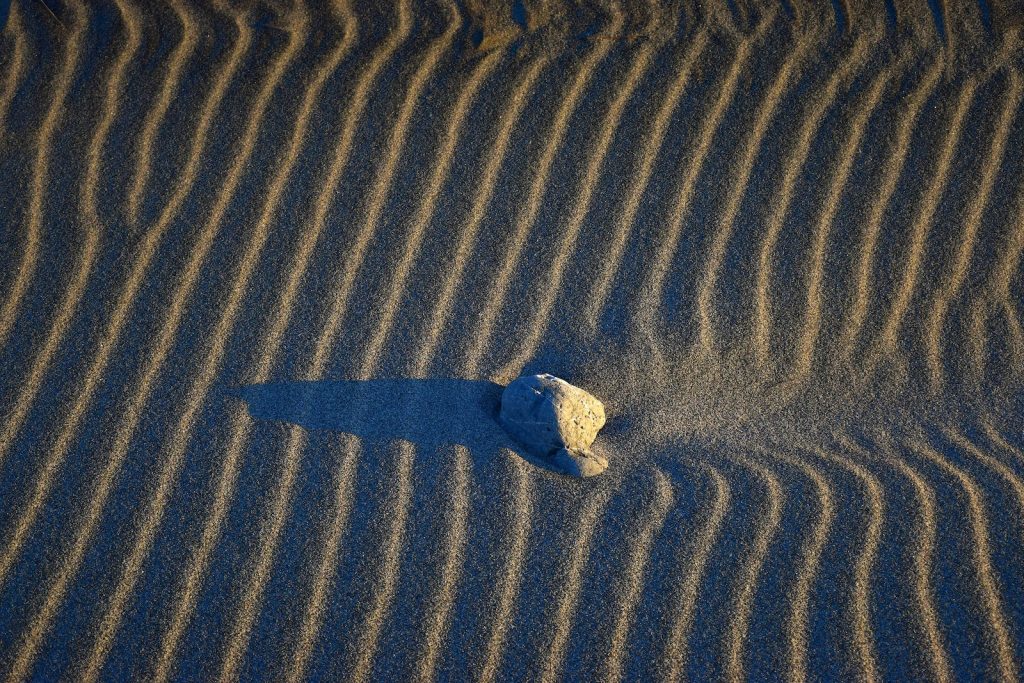In The Dharma of Poetry, author and poet John Brehm likens meditation to poetry, as both allow us to shift out of our habits of mind and experience a moment of spaciousness. He suggests that a poet can be defined “as one who stops.” The poet steps out of the ongoing flow of experience, looks at it, and helps us do the same. With his latest book of poetry, Dharma Talk, Brehm invites us to do just that: pause and contemplate the dharma of our everyday lives.
Published by Wisdom in September, this collection of poems explores life’s paradoxes with a blend of warmth and wit. Brehm raises questions about emptiness, consciousness, and the difference between everything and nothing, but he does not pretend to have the answers (“Infinite causes and conditions brought me / to this moment, who can untangle them?”). Instead, he allows the questions to hang in the air, inviting readers to rest in the not-knowing.
Below is a selection of poems from the collection:
***
Dharma Talk
He said changing nothing changes
everything, which if you change
the words around also suggests
that changing everything
changes nothing,
which further implies
that nothing and everything
are interchangeable, are
in fact the same thing, or
the same non-thing, having
no fixed, unchanging nature,
or a nature that is in constant
change, if change can be said
to be constant, and is therefore
a kind of emptiness about
which it is better to speak
only in the negative, of
what it is not, or not
to speak at all.
Emptiness Is Not Enough
“Emptiness is not enough,” you said,
and we all laughed at that, filling the air
with an ancient human sound.
Funny how we never think
of hunter-gatherers laughing,
but they must have, all that time
lying around singing and fucking,
there must have been laughter, too—
monkey business, Paleolithic slapstick.
Has anyone studied the evolution
of laughter, of humor? Probably.
Is there anything we haven’t studied,
haven’t dragged into the realm of
human comprehension? Even
emptiness: whole books on it,
many talks, six-week online courses,
nine-day retreats. Not that we will
ever know all there is to know
about the empty knowing that pervades
all things. Some neuroscientists
now believe the only way to solve
“the hard problem of consciousness,”
how we get from unconscious matter
to subjective awareness, is by positing
that all matter is, to one degree or another,
conscious, and that human consciousness
is just a scaling up (in some cases
a scaling down) of the consciousness
that’s already present in trees and grass, ants
and antelope. Panpsychism is what such
a philosophical position is called, a modern
version of what our distant ancestors
knew to be true, that everything is alive
with spirit, intelligence, sacredness.
Still, one might ask why matter is conscious,
why is there consciousness at all?
An unanswerable question, also known
as a mystery. But why am I saying all this,
suddenly giving a little lecture on a subject
I can just barely pretend to almost understand?
Infinite causes and conditions brought me
to this moment, who can untangle them?
Last night, just before sleep, I prayed
for inspiration, for a poem to be given to me,
and this is what has arisen from the emptiness,
the shape my wish has taken. That would be
one way to explain it. The other ways
are beyond me.
Something and Nothing
There’s something to be said
for having nothing to say,
though I don’t know what
that is, or isn’t, just as
there’s something to be
known about not-knowing,
which I would tell you
if I could. There must be
something to be gained
by losing, a seed of victory
buried in every failure,
else I would not be here.
Clearly, there’s something
to be desired about being
beyond desire, as the sages
never tire of telling us,
and nothing more fulfilling
than emptying yourself out—
no ground beneath your feet,
nothing to hold onto, no handrail,
no belief, only this bright,
self-sustaining air, and a falling
that feels like floating.
Metta
The book I’m reading suggests we send
lovingkindness to everyone we see,
silently addressing them thus:
“May you be well, may you be safe,
may you be happy.” And I do this
for a while, sitting inside a cafe,
watching the foot traffic go by.
It feels good—generous,
loving, kind. But after a time
I start modifying the blessing:
“May you be well, may you be safe,
may you be happy … and maybe also
lose the frowning-into-the-phone
facial expression I get so tired
of seeing everywhere I go.”
It’s the shadow side of lovingkindness
sticking its nose in, having its say,
and I can’t seem to shut it up.
Someone else walks by and I offer:
“May you be well, may you be safe,
may you be happy … and while you’re at it,
how about some nicer clothes?
It wouldn’t kill you to dress
with a bit more panache, would it?”
I keep on in this way, dishing out
blessings with a side of helpful advice,
until I notice across the room two young women
sitting side by side, talking quietly,
in no need of either my good wishes
or my corrective commentary.
But then I see that one of them is crying,
nodding her head when her friend
says something, wiping tears
from her cheeks with the palms
of her hands. She pulls it together
for awhile, but then her face clenches
and she gives in, until her friend
lays a hand on her shoulder
and she can talk again—a gentle
rhythm of crying and talking,
waves rising and falling.
It doesn’t look like she’s been
visited by tragedy, a sudden death
or shattering diagnosis.
Ordinary heartbreak would be
my guess, the shock of betrayal,
some painful reversal in the endless
cycle of loss and gain, and now
a new emptiness spreads out before her
and she doesn’t know what to do.
But what kills me is when she tucks her hair
behind her ear and tries not to cry,
and fails, overcome by this sadness,
so that I feel it, too, a great swell lifts
and carries me and almost pulls me under—
and then I’m in the thick of it,
wishing her to be well, to be safe,
to be happy, as if my life
depended on it.
⧫

© 2023 John Brehm, “Dharma Talk,” “Emptiness Is Not Enough,” “Something and Nothing,” and “Metta” from Dharma Talk. Reprinted by arrangement with Wisdom Publications, Inc., wisdomexperience.org.
Thank you for subscribing to Tricycle! As a nonprofit, we depend on readers like you to keep Buddhist teachings and practices widely available.
